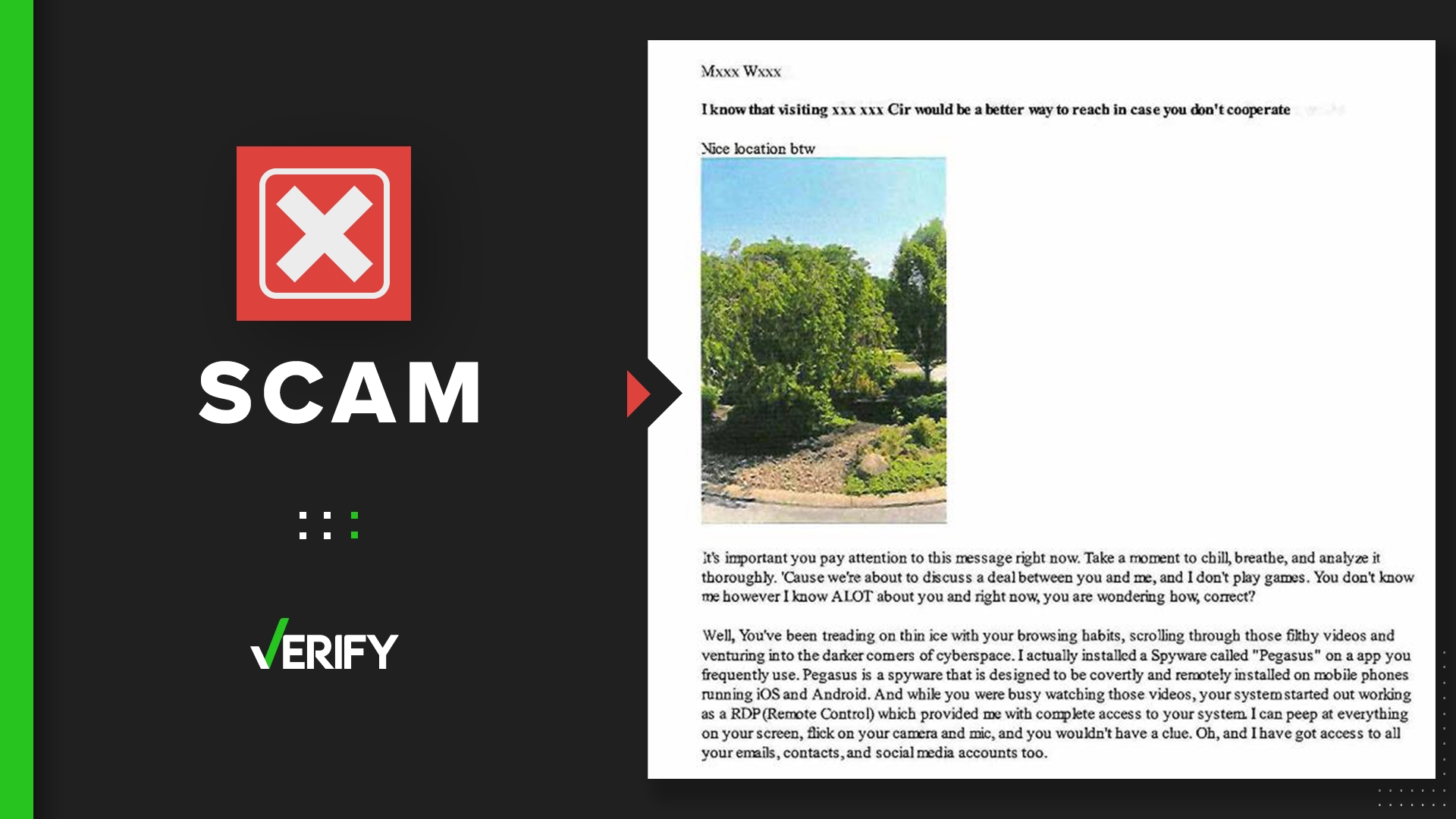Numerous people on social media shared concerns after receiving an email that contained a photo of their homes. The writer of the email claims they have gathered the recipient’s personal information and webcam footage after gaining access to their device using a spyware called Pegasus. The writer of the email threatens to send the footage to all of the recipient’s contacts unless they send a payment through bitcoin.
Google Trends shows an increase in searches about Pegasus spyware in the last week.
THE QUESTION
Are emails that claim you’ve been watched through Pegasus spyware and include a photo of your home legit?
THE SOURCES
THE ANSWER
No, emails that claim you’ve been watched through Pegasus spyware and include a photo of your home are not legit.
WHAT WE FOUND
Emails that include a photo of your home, claim webcam footage of you has been collected and demand bitcoin payment for privacy are common scams.
Multiple police departments, including in Ohio, Utah and Pennsylvania, have issued warnings about the scam emails.
“These are mass emailed scams. We have no intel to indicate that the perpetrators are local or are even in the USA,” Westlake Police Department in Westlake, Ohio, said.
Back in 2020, the Federal Trade Commission published a consumer alert noting an increase in these types of scam emails.
“The emails say they hacked into your computer and recorded you visiting adult websites. They threaten to distribute the video to your friends and family within hours, unless you pay into their Bitcoin account. Stop. Don’t pay anything. Delete the message. It’s a scam,” the alert says.
The Pegasus surveillance software mentioned in the email is real, but it's highly unlikely for an individual person to gain access to it.
The spyware was “developed by NSO Group, an Israeli cyber-arms company that licenses its use to government agencies, law enforcement, and militaries around the world” and “private individuals are extremely unlikely to get access to or use Pegasus spyware,” Norton says.
It's likely the personal information included in the email was obtained during a data breach, the FTC says.
Photos of homes were potentially taken off of Google Maps, according to the Orem Police Department. Google Maps’ Street View feature allows for anyone to view a specific address via images taken by Google and its contributors.
The FTC recommends deleting the email and reporting it on the FTC website and to the FBI.

